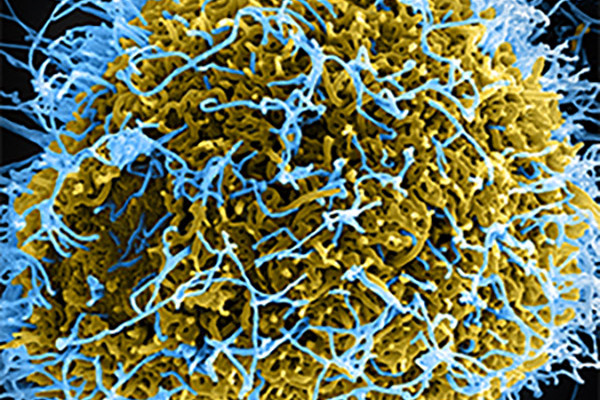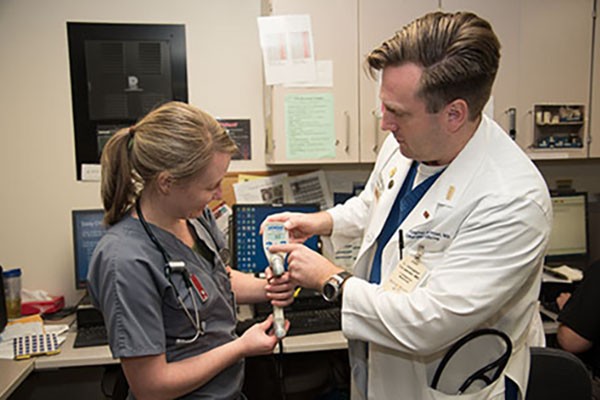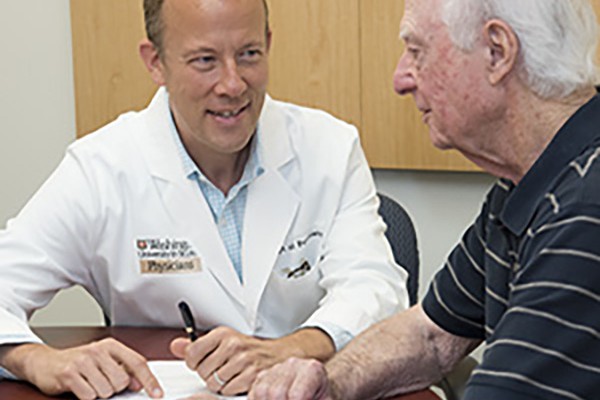Gordon to receive Keio Medical Science Prize
Jeffrey I. Gordon, MD, the Dr. Robert J. Glaser Distinguished University Professor at Washington University School of Medicine in St. Louis, is a recipient of the 2015 Keio Medical Science Prize.
New test detects all viruses that infect people, animals
A new test efficiently detects virtually any virus that infects people and animals, according to research at Washington University School of Medicine, where the technology was developed.
Washington People: Chris Carpenter
Watching his grandparents struggle at the end of their long lives hasmotivated Chris Carpenter, MD, an associate professor of emergency medicine at Washington University School of Medicine, to work countless hours to improve emergency room care for older adults and to help create a new medical subspecialty — geriatric emergency medicine.
Deshields named psychosocial oncology society fellow
Teresa Deshields, PhD, manager of Siteman Counseling Service at Siteman Cancer Center at Barnes-Jewish Hospital and Washington University School of Medicine, has been chosen as a 2015 fellow by the American Psychosocial Oncology Society.
Two-drug combo helps older adults with hard-to-treat depression
More than half of older adults with clinical depression don’t get better when treated with an antidepressant. But results from a multicenter clinical trial that included Washington University School of Medicine in St. Louis indicates that adding a second drug — an antipsychotic medication — to the treatment regimen helps many of those patients.
Mutch named chief of Colon and Rectal Surgery
Matthew Mutch, MD, a nationally known clinician and educator in the laparoscopic treatment of colorectal cancer, has been named chief of Colon and Rectal Surgery in the Department of Surgery at Washington University School of Medicine in St. Louis.
Mimicking diet changes of global travel reveals clues to gut health
With the growing understanding of the importance of gut bacteria in human health, researchers at the School of Medicine studied gut motility, measuring the transit time of food moving through the gastrointestinal tract in mice in a way that mimicked the dietary effects of world travel. The study demonstrates ways to uncover how even a single ingredient, such as turmeric, can affect health through interactions of diet and gut microbes.
Cells’ lack of glucose dulls immune system’s ability to fight cancers
Cancers have many strategies for avoiding attacks from the immune system. But the more scientists are able to understand about them, the more effectively they will be able to use the immune system to fight cancer. To that end, researchers at Washington University School of Medicine in St. Louis have identified a new strategy.
Child development center parking lot not to be used for garage access
The St. Louis Children’s Hospital Child Development Center parking lot is not a
thoroughfare for garage access. Using it as such compromises the safety
of children and parents, so employees are asked not to drive through the
lot to access the garages. Employees traveling north on Newstead can
proceed north a half block to Duncan to access both garages.
Bhayani named chief medical officer of Washington University Physicians
Sam Bhayani, MD, has been appointed chief medical officer of the Faculty Practice Plan at Washington University School of Medicine in St. Louis, effective Nov. 1. The university’s Faculty Practice Plan, known as Washington University Physicians, ranks among the five largest academic group practices in the United States.
View More Stories



